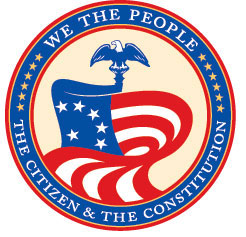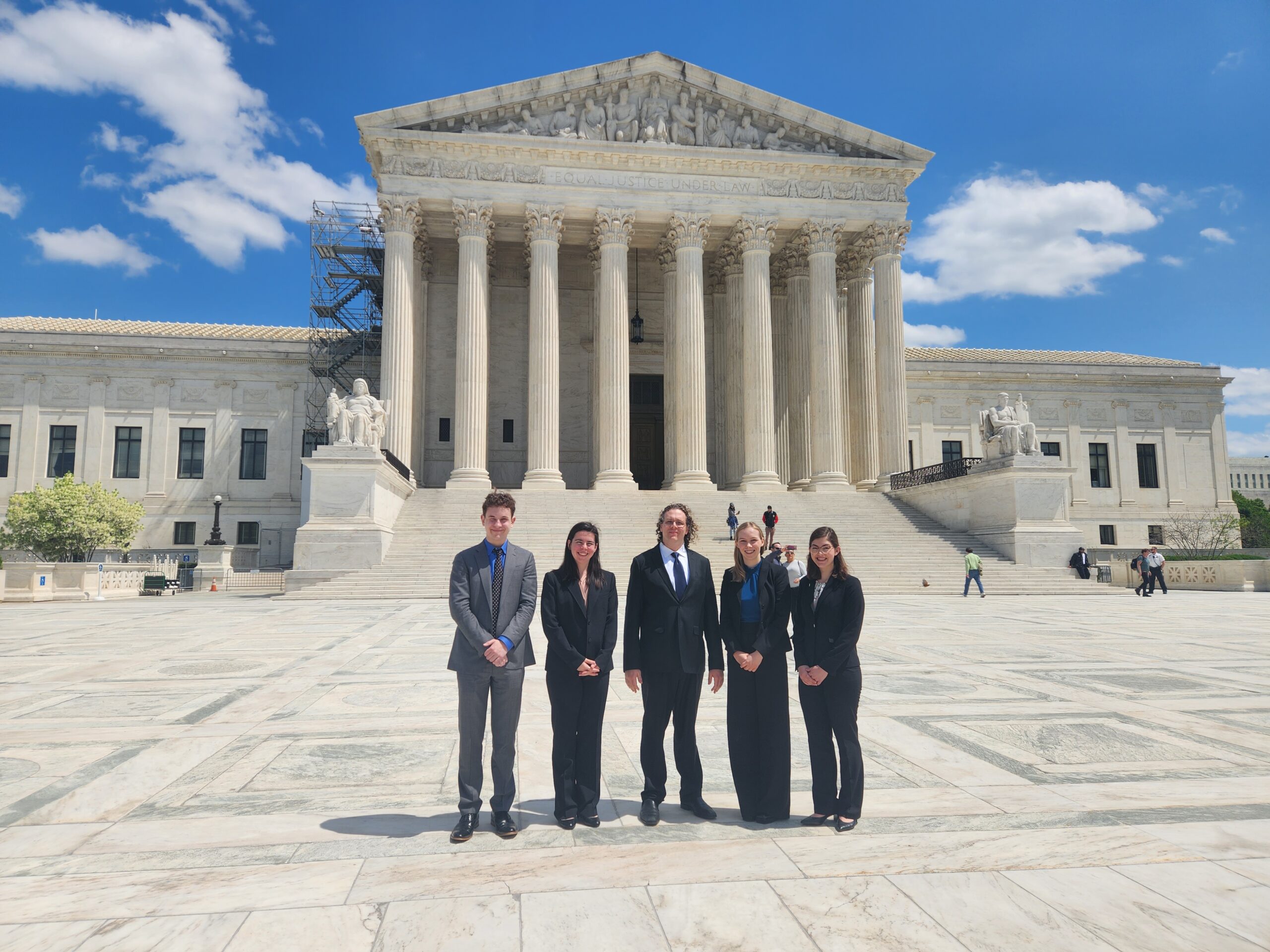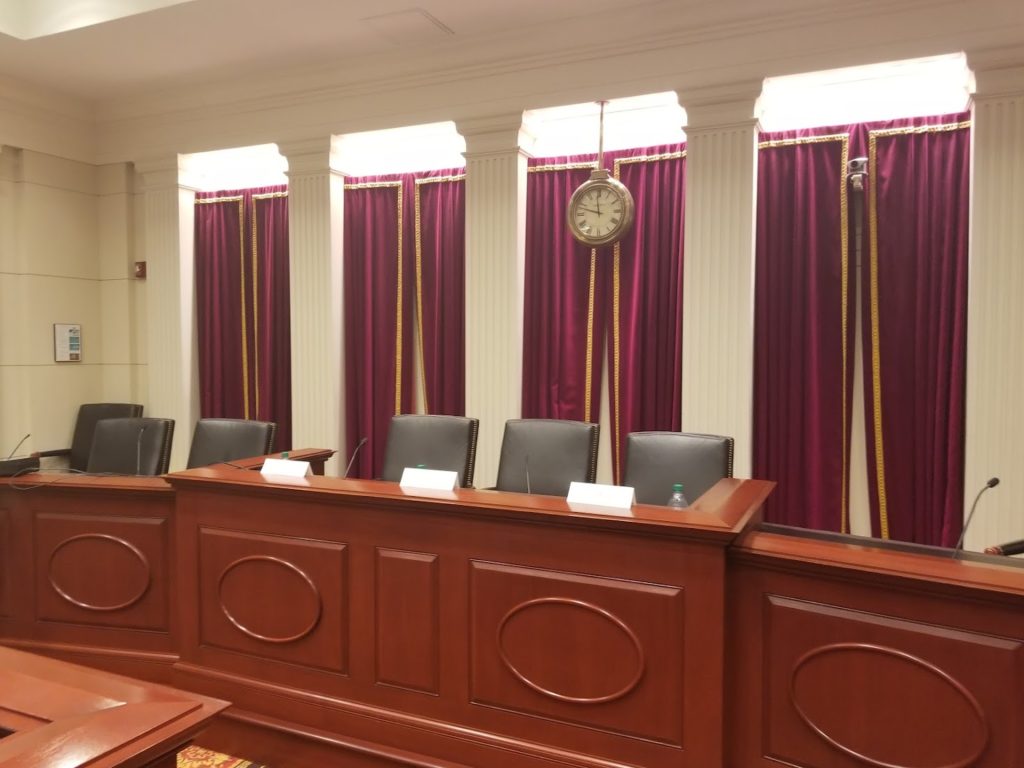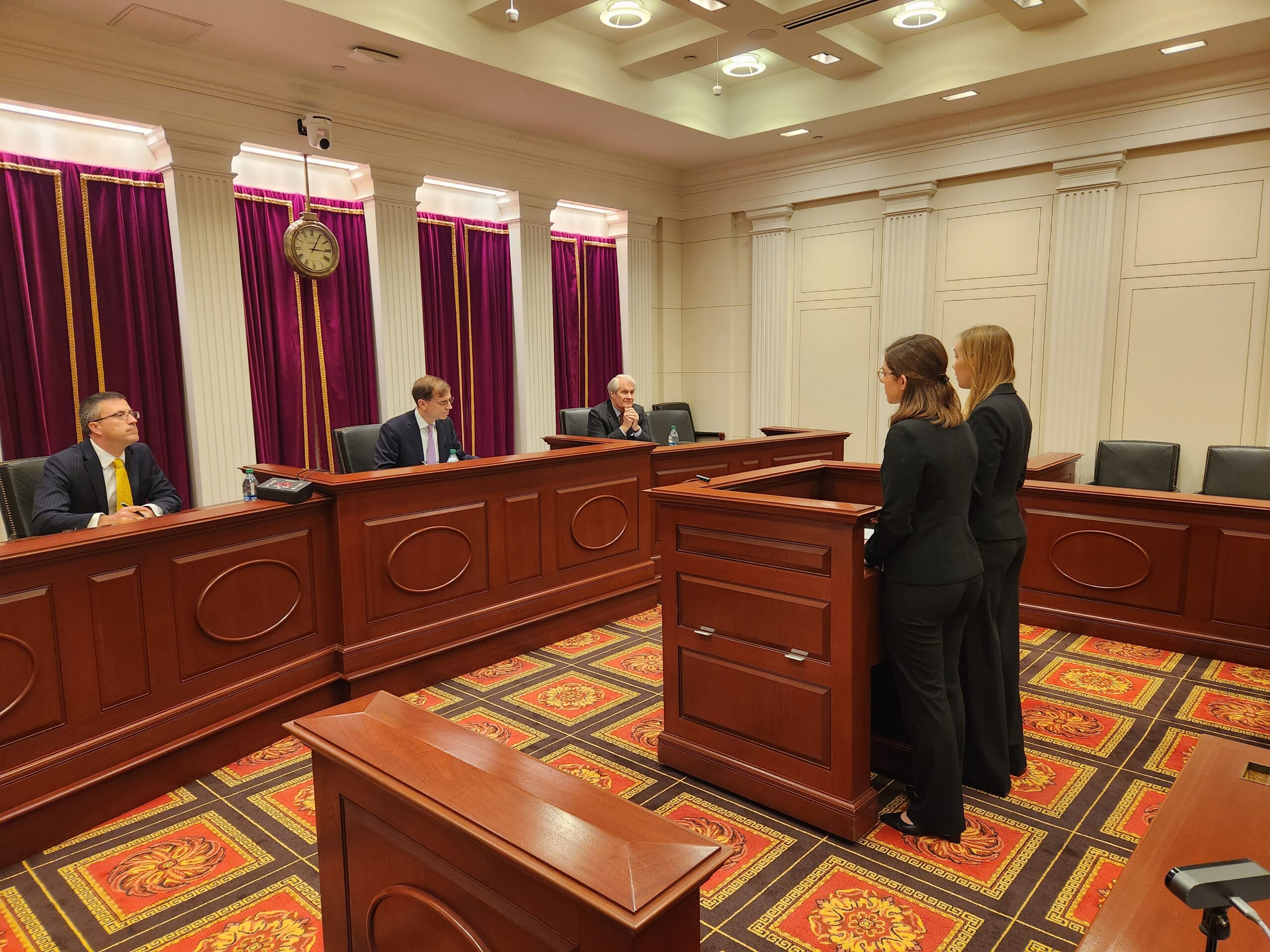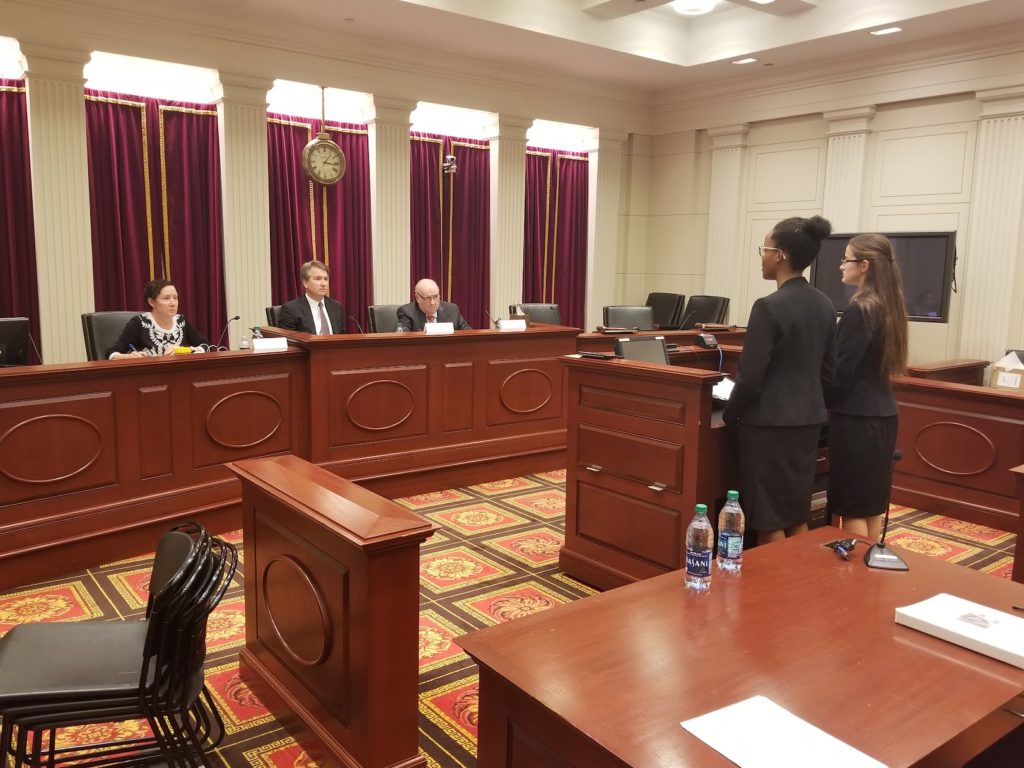The 14th Annual Harlan Institute Virtual Supreme Court Competition: Patriots v. Loyalists
October 7, 2025
The Harlan Institute is pleased to announce the Fourteenth Annual Virtual Supreme Court Competition. This competition offers teams of two high school students the opportunity to research cutting-edge constitutional law, write persuasive appellate briefs, argue against other students through video chats, and try to persuade a panel of esteemed attorneys during oral argument that their side is correct. This year, in honor of America's 250th Anniversary, the competition will focus on the case of Patriots v. Loyalists.
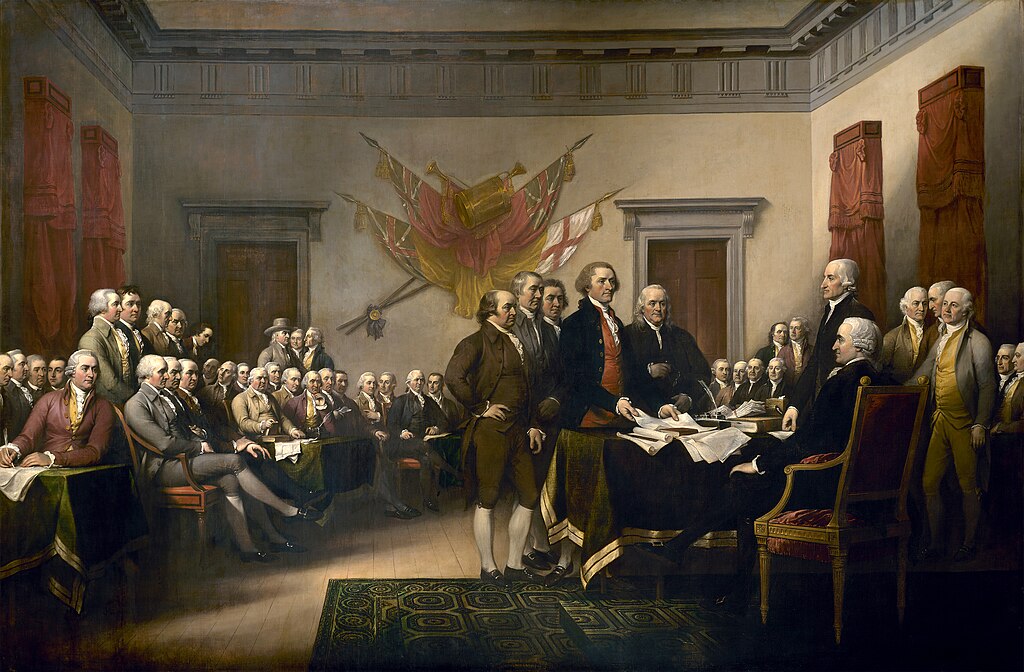
Patriots v. Loyalists
Before The Honorable Continental Congress
Oral Argument Date: July 3, 1776

Statement of the Case
In honor of America's 250th birthday, the Harlan Institute will host a very special Virtual Supreme Court Competition for the October 2025 Term. We will re-enact the debates over independence in the form of a moot court competition. Teams of two high school students will make the legal case for and against independence through written and oral advocacy. The top two teams that advance will present oral arguments in the case of Patriots v. Loyalists before a panel of federal judges in a very special location. Coaches can register their teams at the Institute for Competition Sciences.Question Presented:
Should the United Colonies declare independence from Great Britain?Primary Sources
This is a "closed" competition. Students will be limited to the use of the following primary sources that existed prior to July 4, 1776. Students cannot rely on the benefit of hindsight or knowledge of what happened after the Declaration of Independence was adopted.Before 1773
- 1690 - John Locke's Second Treatise of Government - Chapters XVII (Of Usurpation), XVIII (Of Tyranny), XIX (Of Dissolution of Government)
- March 22, 1765 - The Stamp Act, passed by the British Parliament
- May 29, 1765 - Virginia Resolves on the Stamp Act, by Patrick Henry
- October 19, 1765 - Resolution of the Continental Congress in response to the Stamp Act ("The Stamp Act Congress")
- March 18, 1766 - An Act Repeaåling the Stamp Act by the British Parliament
- 1768 - Letters from a farmer in Pennsylvania, to the inhabitants of the British Colonies concerning the Stamp Act by John Dickinson
- March 1770 - The Bloody (Boston) Massacre by Paul Revere
- November 20, 1772 - The Rights of the Colonists, Samuel Adams (Boston Committee of Correspondence)
1773
- March 12, 1773 - Virginia Resolutions Establishing A Committee of Correspondence
- April 9, 1773 - Committee of Correspondence (Transcription), Boston
- May 10, 1773 - Tea Act Resolution by the British Parliament
- May 28, 1773 - Resolutions of the Massachusetts House of Representatives Agreeing to the Virginia Proposal
- October 16, 1773 - The Philadelphia Resolutions in response to the Tea Act
- November 29, 1773 - Meeting of the people of Boston at Faneuil Hall to prevent the sale of East Indian Company Tea
- December 16, 1773 - Tea, Destroyed by Indians
- December 17, 1773 - Diary of John Adams after the Boston Tea Party
1774
- March 31, 1774 - The Boston Port Act in response to the Boston Tea Party, by the British Parliament
- May 13, 1774 - Circular Letter of the Boston Committee of Correspondence
- May 20, 1774 - The Massachusetts Government Act, by the British Parliament
- May 20, 1774 - The Administration of Justice Act
- May 20, 1774 - The Mecklenburgh (North Carolina) Resolutions
- May 23, 1774 - Letter from the New York Committee of Fifty-One to the Boston Committee of Correspondence
- May 27, 1774 - Association signed by 89 members of the late Virginia House of Burgesses
- June 2, 1774 - The Quartering Act, by the British Parliament
- July 1774, A Summary View of the Rights of British America, by Thomas Jefferson
- July 18, 1774 - Fairfax County (Virginia) Resolves
- July 19, 1774 - Proceedings of the Committee of Correspondence, New York
- September 9, 1774 - Suffolk (Massachusetts) Resolves
- September 9, 1774 - Heads of Grievances and Rights, Continental Congress
- September 30, 1774 - Motion on Nonexportation and Defense, Continental Congress
- October 10, 1774 - Message to General Gage, Continental Congress
- October 14, 1774 - Declaration and Resolves of the First Continental Congress (The Bill of Rights; a List of Grievances)
- October 20, 1774 - Response from General Gage
- October 20, 1774 - Continental Association, Continental Congress
- December 1774 - Novanglus (John Adams) and Massachusettensis (Daniel Leonard)
- 1774 - Considerations on the Nature and Extent of the Legislative Authority by James Wilson
- 1774 - A very short and candid appeal to free born Britons, an anonymous pamphlet
1775
- January 13, 1775 - Address to New Jersey Provincial Assembly, by Governor William Franklin
- March 22, 1775 - Speech of Edmund Burke, Esq. On Moving His Resolution for Conciliation with the Colonies
- March 23, 1775 - Give Me Liberty or Give Me Death, Patrick Henry
- July 6, 1775 - A Declaration by the Representatives of the United Colonies of North-America, Now Met in Congress at Philadelphia, Setting Forth the Causes and Necessity of Their Taking Up Arms by the Continental Congress
- July 8, 1775 - Olive Branch Petition from the Continental Congress to the King
- July 31, 1775 - Resolution, Continental Congress
- August 23, 1775 - A Proclamation for Suppressing Rebellion and Sedition by King George III
- November 9, 1775 - Agreement of Secrecy adopted by the Continental Congress
- November 9, 1775 - Instruction to Delegates in Congress, The Pennsylvania Assembly
- 1775 - Taxation no Tyranny, by Samuel Johnson
- 1775 - Tyranny Unmasked: An Answer to a Late Pamphlet Entitled Taxation no Tyranny
1776
- January 10, 1776 - Common Sense by Thomas Paine
- March 1776 - Plain Truth by James Chalmers (Candidus), a response to Common Sense
- April 12, 1776 - Halifax (North Carolina) Resolves by the North Carolina Assembly
- May 13, 1776 - Notes of Debates in the Continental Congress, John Adams
- May 15, 1776 - Preamble to Resolution on Independent Governments, Continental Congress
- May 15, 1776 - Resolutions of the Virginia Convention Calling for Independence
- June 7, 1776 - Jefferson's Notes of Proceeding in the Continental Congress
- June 7, 1776 - Lee Resolution introduced by Richard Henry Lee
- June 10 and 11, 1776 - Journal of the Continental Congress
- Drafts of the Declaration of Independence
- June 14, 1776 - Instruction to Delegates in Congress, The Pennsylvania Assembly
- June 28, 1776 - Journal of the Continental Congress
- June 29, 1776 - Constitution of Virginia
- July 1, 1776 - Journal of the Continental Congress
- July 1, 1776 - Arguments against the Independence of these Colonies by John Dickinson (Manuscript)
- July 1, 1776 - Diary of John Adams
- July 1, 1776 - John Adams to Samuel Chase
- July 2, 1776 - Journal of the Continental Congress
- July 4, 1776 - Journal of the Continental Congress
Preliminary Round
Deadline: November 20, 2025 (11:59 PM ET) All teams are invited to participate in the Preliminary Round. There will be a written component and an oral component. Submissions will be graded based on this rubric.Written Component
Teams will be asked to answer the following ten questions in a neutral, objective fashion. At this point of the competition, teams are not yet advocating for or against a position. Each answer should be at least 200 words but no more than 1,000 words, and must cite at least two primary sources. This competition is "closed," and students cannot cite any other sources. Carefully proofread the assignment for spelling, grammar, and usage. The use of generative AI is prohibited. Teams that are found to have used AI will be immediately disqualified.- Discuss the role that the Stamp Act played in the relationship between Great Britain and the Colonies from 1765 to 1772.
- Discuss how the Colonies, and in particular the Committee of Correspondence, responded to the Tea Act Resolution of 1773.
- Discuss how the Colonies responded to the Intolerable Acts of 1774 (The Boston Port Act, The Massachusetts Government Act, and the Quartering Act).
- Discuss how the actions of the Continental Congress in 1774 moved the Colonies towards declaring independence.
- Describe the arguments advanced by patriots in pamphlets, speeches, and other writings from 1774–1776 that supported declaring independence.
- Describe the arguments advanced by loyalists in pamphlets, speeches, and other writings from 1774–1776 that opposed declaring independence.
- Discuss the Continental Congress's efforts of reconciliation with Great Britain in 1775.
- Discuss the deliberations of the Continental Congress in June and July 1776 that led to declaring independence.
- Discuss how the text of the Declaration of Independence changed throughout different drafts in June and July of 1776.
- Discuss writings, speeches, and other sources that influenced the Declaration of Independence.


